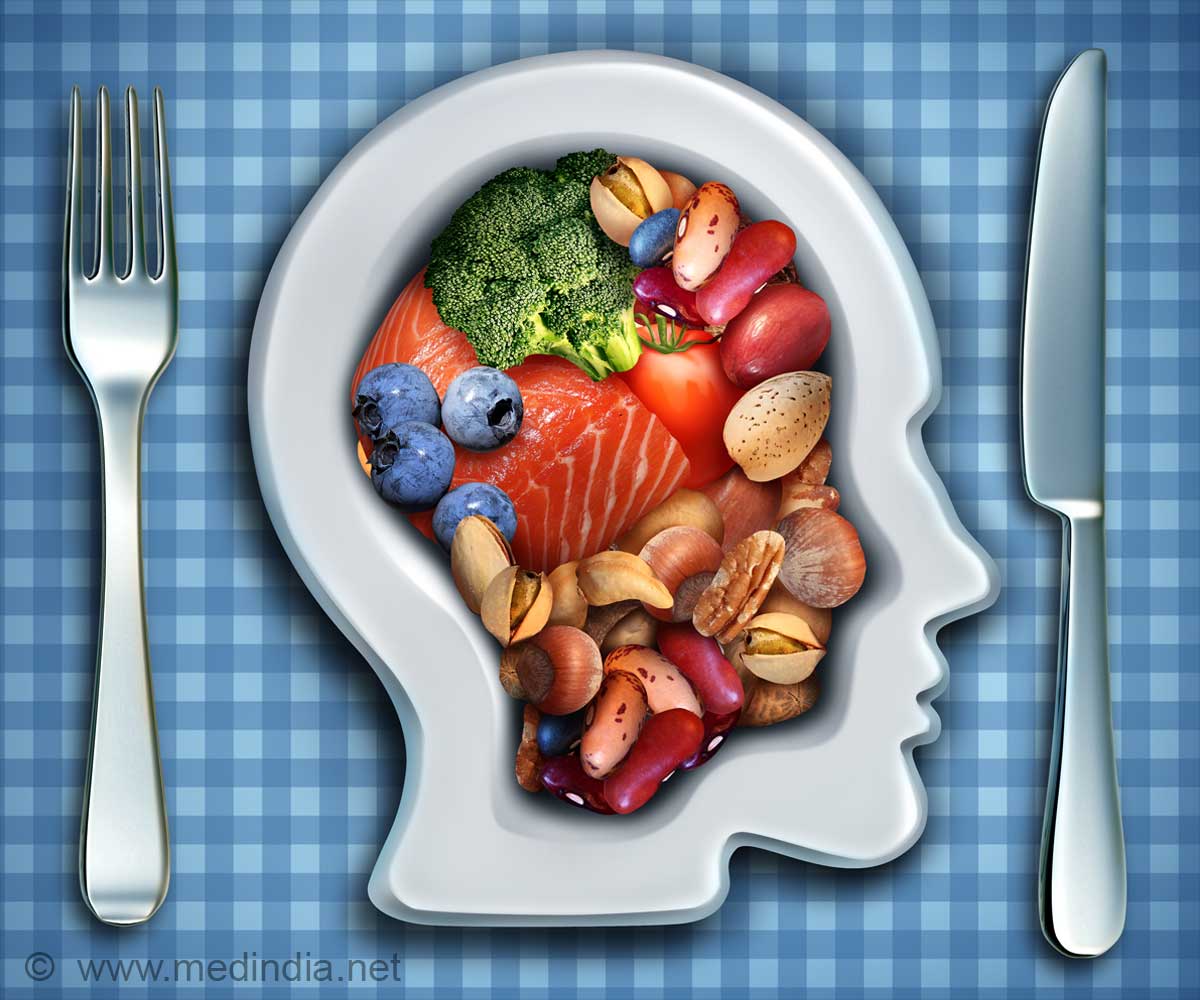Learn how a brain-healthy diet supports cognitive function and reduces dementia risk in old age.

- People following the MIND diet experienced slower cognitive decline
- High diet adherence linked to a 4% decreased risk of cognitive impairment compared to low adherence
- Females who closely followed the MIND diet had a 6% decreased risk of cognitive impairment compared to males
Following a diet that closely resembles the MIND diet can lower the risk of cognitive impairment. #minddiet #cognitivehealth #medindia’
What is the MIND Diet?
MIND diet (Mediterranean-DASH Intervention for Neurodegenerative Delay) is a combination of the Mediterranean diet and the DASH (Dietary Approaches to Stop Hypertension) diet.This diet promotes brain health and reduces the risk of neurodegenerative diseases, particularly Alzheimer’s disease. The MIND diet focuses on foods that are thought to support cognitive function and reduce inflammation (1✔ ✔Trusted Source
Association of Adherence to a MIND-Style Diet With the Risk of Cognitive Impairment and Decline in the REGARDS Cohort
Go to source).
Core Food Groups of the MIND Diet
- It includes green leafy vegetables like spinach, kale, and collard greens, along with other vegetables.
- Recommends whole grains, olive oil, poultry, fish, beans, and nuts.
- Prioritizes berries over other fruits.
- Recommends one or more servings of fish per week.
Importance of Cognitive Health
Finding ways to postpone or reduce the onset of cognitive impairment is crucial because the number of people suffering from dementia is rising alongside the aging population.The study’s purpose was to investigate whether the diets of Black and White participants influenced the likelihood of experiencing cognitive impairment.
The study involved 14,145 people with an average age of 64. Of the participants, 70% were white and 30% were Black. They were followed for an average of 10 years.
Participants filled out a questionnaire on their diet over the past year. Researchers examined how closely people ate foods that matched the MIND diet (2✔ ✔Trusted Source
Dementias
Go to source).
How MIND Diet Influences Cognitive Impairment
Participants were given points based on their adherence to the MIND diet, with a maximum total of 12 points. Points were awarded for consuming recommended servings of whole grains, vegetables, fruits, fish, poultry, beans, nuts, and olive oil while limiting red meat, fast or fried foods, butter or margarine, pastries, sweets, and alcohol.Researchers divided the participants into three groups based on their diet scores:
- The low group had an average diet score of five.
- The middle group had an average score of seven.
- The high group had an average score of nine.
- 532 people (12% of 4,456) in the low diet group.
- 617 people (11% of 5,602) in the middle group.
- 402 people (10% of 4,086) in the high group.
Gender Disparity in Developing Cognitive Impairment
Among the participants, women who closely followed the diet had a 6% lower chance of cognitive impairment than men, but there was no decrease in risk for the male participants.The study also examined how quickly people’s cognitive abilities declined when they encountered problems. Specifically, adhering to the MIND diet was linked to a slower decline compared to those who did not follow the diet, and this association was stronger in Black participants than in White participants (3✔ ✔Trusted Source
Diet Review: MIND Diet
Go to source).
Benefits of Following the MIND Diet
- Lowers the risk of developing
Alzheimer’s disease and dementia. - Helps preserve cognitive function, enhancing memory and thinking skills as people age.
- Aids in maintaining a healthy weight, reducing obesity-related cognitive decline.
- May positively influence mood and mental well-being.
- Heart health is crucial for brain health as it ensures proper blood flow and reduces the risk of stroke, which can lead to cognitive impairment.
- Many foods in the MIND diet have anti-inflammatory properties, which can help protect against chronic diseases and cognitive impairment.
It’s exciting to consider that people could make simple dietary changes and potentially reduce or postpone their risk of cognitive challenges.
References:
- Association of Adherence to a MIND-Style Diet With the Risk of Cognitive Impairment and Decline in the REGARDS Cohort - (https://www.neurology.org/doi/10.1212/WNL.0000000000209817)
- Dementias - (https://www.brainandlife.org/disorders/dementias)
- Diet Review: MIND Diet - (https://nutritionsource.hsph.harvard.edu/healthy-weight/diet-reviews/mind-diet/)
Source-Medindia















